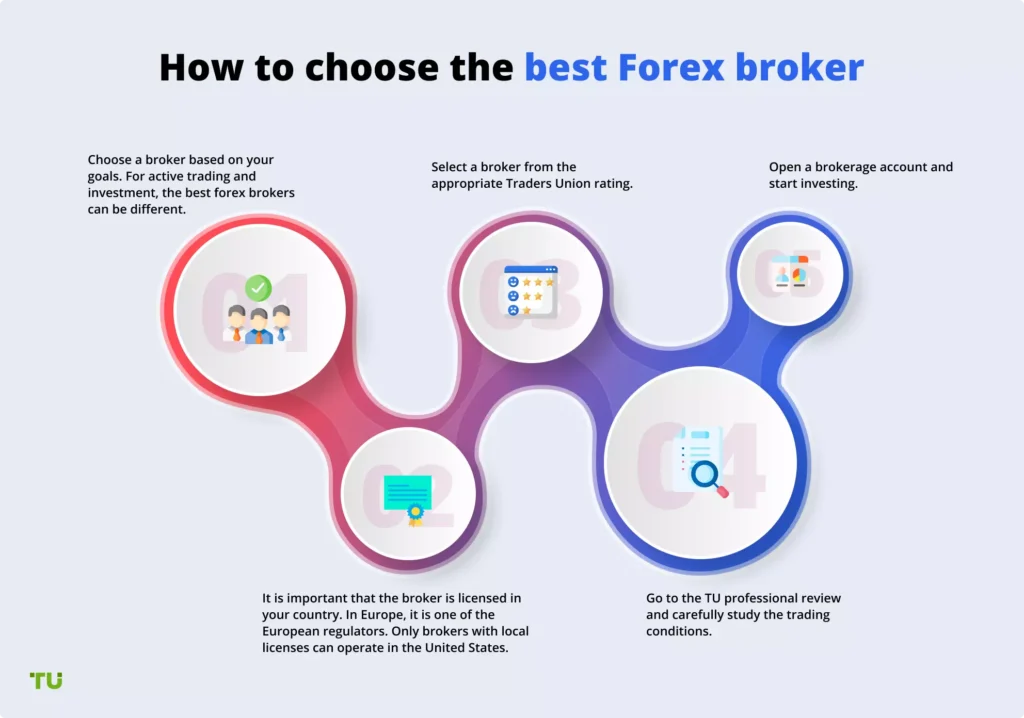Forex Broker: Choosing the Right One for You – When it comes to trading in the foreign exchange market, selecting the right Forex broker is crucial for success. With a plethora of options available, it’s essential to understand the key factors that differentiate one broker from another. In this comprehensive guide, we’ll delve into the essential features to consider, top brokers in the market, tips for selection, and common mistakes to avoid.
Introduction to Forex Brokers

In the dynamic world of foreign exchange trading, forex brokers play a crucial role as intermediaries between retail traders and the global currency market. These entities facilitate access to the forex market, enabling individuals and institutions to buy and sell currencies.
What is a Forex Broker?
A Forex broker acts as an intermediary between traders and the interbank system, facilitating currency trading. They provide access to trading platforms, offer leverage, and execute trades on behalf of their clients.
Importance of Choosing the Right Forex Broker
The choice of broker significantly impacts your trading experience and outcomes. From regulatory compliance to trading conditions, selecting a reputable and reliable broker is paramount.
Types of Forex Brokers
Dealing Desk (DD) brokers
Dealing Desk brokers, also known as market makers, act as counterparties to their clients’ trades. They create a market for traders by quoting both a buy and sell price and profiting from the spread.
No Dealing Desk (NDD) brokers
No Dealing Desk brokers, on the other hand, do not intervene in clients’ trades. Instead, they route orders directly to liquidity providers, such as banks and financial institutions, ensuring transparent and fair execution.
Electronic Communication Network (ECN) brokers
ECN brokers utilize electronic communication networks to match buyers and sellers in the forex market. They offer access to interbank liquidity and typically charge a commission on trades.
Factors to Consider When Choosing a Forex Broker
Regulation and Licensing
Regulated brokers offer a layer of security and transparency, ensuring fair trading practices and the safety of funds. Look for brokers licensed by renowned regulatory bodies like the FCA (Financial Conduct Authority) or ASIC (Australian Securities and Investments Commission).
Trading Platforms Offered
The trading platform is your gateway to the Forex market. Ensure the broker provides a user-friendly platform with essential features like charting tools, technical indicators, and order execution capabilities.
Asset Selection and Diversity
A diverse range of currency pairs and other financial instruments allows for greater trading opportunities and portfolio diversification. Opt for brokers offering a wide selection of assets to trade.
Customer Support and Service
Reliable customer support is indispensable, especially during volatile market conditions or technical issues. Choose brokers with responsive customer service available via multiple channels like live chat, email, and phone.
Transaction Costs and Fees
Consider the broker’s fee structure, including spreads, commissions, and overnight financing charges. Low transaction costs can significantly impact your profitability, especially for frequent traders.
Key Features to Consider
Selecting the right forex broker is paramount for successful trading. Several factors should be carefully evaluated before making a decision:
- Regulation and licensing: Choose a broker regulated by reputable authorities to ensure safety of funds and fair trading practices.
- Trading platform: Assess the functionality and usability of the trading platform offered by the broker.
- Spreads and commissions: Compare spreads and commission structures to minimize trading costs.
- Execution speed: Opt for a broker with fast and reliable order execution to capitalize on market opportunities.
- Customer support: Consider the availability and responsiveness of customer support services.
Tips for Selecting the Right Forex Broker
To navigate the plethora of forex brokers available, consider the following tips:
- Research and compare brokers: Conduct thorough research and compare broker offerings to find the best fit for your trading needs.
- Check for regulatory compliance: Verify the broker’s regulatory status and ensure compliance with industry standards.
- Test the trading platform: Take advantage of demo accounts to test the broker’s trading platform and features.
- Consider fees and charges: Evaluate the overall cost of trading, including spreads, commissions, and overnight fees.
Common Mistakes to Avoid When Choosing a Forex Broker
In the process of selecting a forex broker, avoid the following pitfalls:
- Ignoring regulation: Trading with an unregulated broker exposes you to unnecessary risks, including fund mismanagement and unfair trading practices.
- Falling for marketing gimmicks: Beware of brokers offering unrealistic promises or bonuses that seem too good to be true.
- Overlooking trading costs: Pay close attention to trading costs, as high spreads and commissions can significantly impact your profitability.
Conclusion
Choosing the right forex broker is a critical decision that can influence your trading success. By considering factors such as regulation, trading platform, and trading costs, you can make an informed choice that aligns with your trading objectives.
FAQs
- How do forex brokers make money?
- Forex brokers primarily generate revenue through spreads, commissions, and overnight financing charges.
- What is the significance of regulation in forex trading?
- Regulation ensures that forex brokers adhere to strict standards of financial conduct, safeguarding the interests of traders and maintaining market integrity.
- Can I trade forex without a broker?
- No, retail traders require the services of a forex broker to access the interbank currency market.
- What are the advantages of using an ECN broker?
- ECN brokers offer access to deep liquidity pools, tight spreads, and transparent order execution, making them popular among experienced traders.
- How can I verify a broker’s regulatory status?
- You can verify a broker’s regulatory status by checking with the relevant regulatory authorities or consulting online resources.



